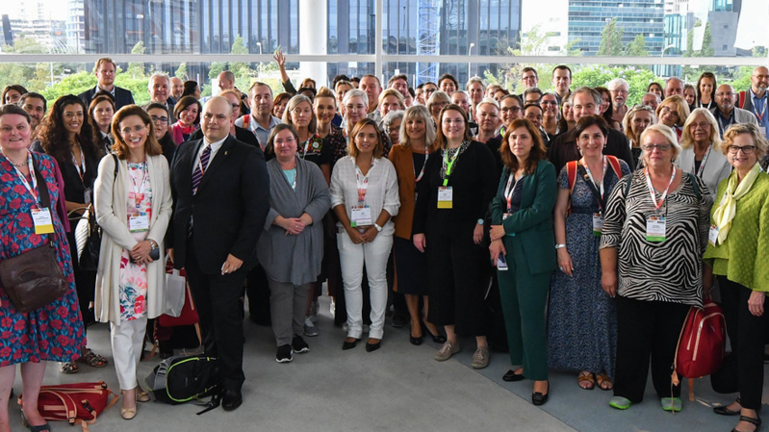Reduced access to insurance, bank loans and mortgages makes financial constraints continue long after cancer has been treated
A diagnosis of cancer often comes with a financial burden on patients and their families due to direct and indirect healthcare costs that may last long after the disease has been treated. Discrimination of cancer survivors is an emerging issue resulting from societal perceptions of life expectancy after cancer that do not reflect the scientific progress being made which is helping patients live longer. “Today, millions of cancer survivors face diminished opportunities in the workplace and in society and it can be really difficult for them to secure insurance, bank loans and mortgages,” says Agata Polińska from Alivia – Cancer Foundation, based in Poland and Spain, ahead of the ESMO Congress 2021 Patient Advocacy session ‘The burden of cancer: Cancer’s financial toxicity and the right to be forgotten’. Limiting access to employment and financial services can have a profound and long-lasting impact on survivors’ lives. “We need a concerted effort by all stakeholders, including patients, patient advocacy groups and governments, to address this issue,” she stresses.
We need urgent action to prevent the escalation of financial toxicity, and the significant burden that direct and indirect healthcare costs place on patients and their caregivers
One way to give cancer survivors equitable access to employment and financial services is to allow them the right to be forgotten, which means that patients no longer have to disclose their cancer diagnosis or treatment after a fixed number of years. According to Polińska, some progress has been made in this area: “In 2018, the European Cancer Organisation and its Patient Advisory Committee issued a Resolution on ‘Survivorship (Financial Discrimination) urging the codifying by 2025 across European countries of the right of cancer survivors not to have to declare their cancer 10 years (5 years for children) after the end of active treatment. In 2020, the right to be forgotten was included in Europe’s Beating Cancer Plan and in the same year, it was also used as the title for an initiative started by the European Cancer Patient Coalition to map the current situation in EU member states and to identify the actions to be put into place at an EU level.” Polińska continues, “The efforts of patient advocates have seen cancer survivors’ right to be forgotten recognised by national laws in France, Belgium, Luxembourg and the Netherlands. It is now time for other countries, within the EU and beyond, to implement similar laws to protect the rights of cancer survivors.”
Beyond preventing survivors from returning to normal life, financial issues are major obstacles to accessing quality cancer care straight after diagnosis. “We need urgent action to prevent the escalation of financial toxicity, and the significant burden that direct and indirect healthcare costs place on patients and their caregivers,” says Polińska highlighting those financial constraints can lead some patients to discontinue therapy or to opt for suboptimal treatment approaches that can comprise outcomes. “The fact that new innovative therapies have completely changed the outlook for patients with cancer – in terms of both survival and toxicity benefits – is not in dispute. However, the costs of new agents, such as targeted therapies and immunotherapies, have risen dramatically; since 2000, the average annual cost of cancer therapies has risen more than 10-fold in the U.S., from US$10,000 to more than US$100,000 for some patients. Take the example of treatment for metastatic colorectal cancer: adding bevacizumab or panitumumab to oxaliplatin-based standard chemotherapy increases costs by 213% and 357% respectively (J Oncol Pract. 2016 Mar;12(3):e299-307, 251), and this is not even the most expensive therapy,” she notes.
Patient advocacy groups can play a pivotal role in seeking compromises enabling patients to negotiate reimbursement problems that are barriers to effective treatment. They also help patients to manage financial toxicity in more direct ways. “For example, with the Alivia Foundation we helped to establish the crowd-funding Piggy Bank Programme in Poland, a country in which national insurance covers the full range of indications of only 29 of the 132 medicines mentioned in ESMO Clinical Practice Guidelines and registered by the EMA in the last 15 years,” concludes Polińska.
Patient Advocacy session – The burden of cancer: Cancer’s financial toxicity and the right to be forgotten, 17.09.09, h. 15:10 – 16:10, Channel 6






